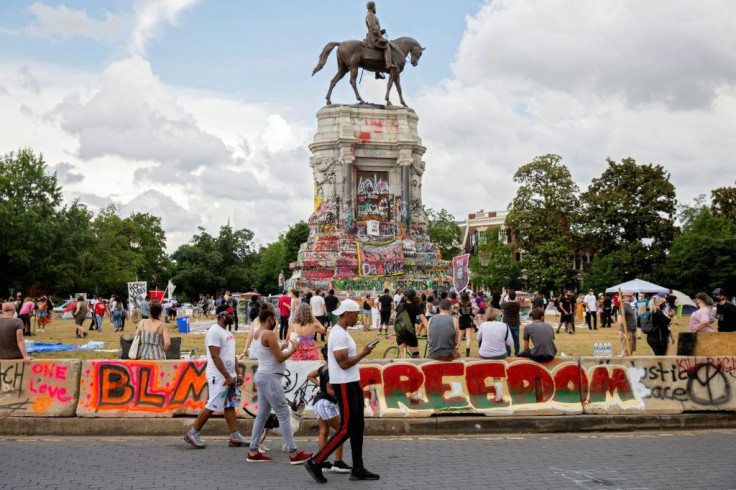Virginia To Replace Century-Old Robert E. Lee Statue With Civil Rights Icon
KEY POINTS
- Virginia's statue of Robert E. Lee will be replaced by one of civil rights icon Barbara Rose Johns
- Each state contributed two statues to the collection in 1909, and Virginia's government hopes this change will help Virginia move past its history
- The statue of Lee will find a permanent home in a Virginia cultural museum
Virginia’s government has decided to remove a statue of confederate general Robert E. Lee from the capitol. It will be replaced by a statue of civil rights icon Barbara Rose Johns and move to the Virginia Museum of History and Culture.
The statue is currently in the Statuary Hall collection, where it has stood for over a century after it was selected as one of the two pieces to represent Virginia in 1909.
“The Robert E. Lee statue honors a legacy of division, oppression, and racism — a dark period in the history of our commonwealth and our country,” a joint statement from Virginia Representatives Donald McEachin and Jennifer Wexton said.
Democratic Gov. Ralph Northam said there is not a definitive date set on the statue’s removal. He hopes the change will give Virginia a more positive spin in the capital.
“I look forward to seeing a trailblazing young woman of color represent Virginia in the U.S. Capitol, where visitors will learn about Barbara Johns’ contributions to America and be empowered to create positive change in their communities just like she did,” he said in a statement.

Johns was selected by Virginia’s Commission for Historical Statues following several online forums to hear public input. She is known for leading a student walk-out at age 16 that eventually contributed to the 1954 Supreme Court case Brown v. Board of Education, which ruled that racial segregation in schools was unconstitutional.
Confederate monuments and their removal have long been hot-button topics. The issue took up greater importance during the Black Lives Matter movement.
© Copyright IBTimes 2024. All rights reserved.





















